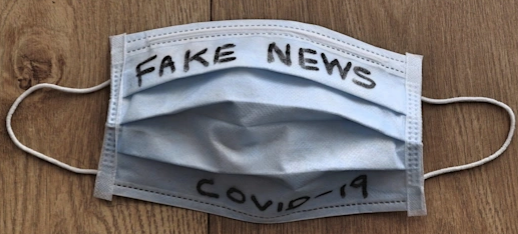Most also think social media companies, and the people that use them, bear a good deal of blame for the situation. But few are very concerned that they themselves might be responsible, according to a new poll from The Pearson Institute and The Associated Press-NORC Center for Public Affairs Research.
The Associated Press reports ninety-five percent of Americans identified misinformation as a problem when they’re trying to access important information. About half put a great deal of blame on the U.S. government, and about three-quarters point to social media users and tech companies. Yet only 2 in 10 Americans say they’re very concerned that they have personally spread misinformation.
More, about 6 in 10, are at least somewhat concerned that their friends or family members have been part of the problem.
For Carmen Speller, a 33-year-old graduate student in Lexington, Kentucky, the divisions are evident when she’s discussing the coronavirus pandemic with close family members. Speller trusts COVID-19 vaccines; her family does not. She believes the misinformation her family has seen on TV or read on questionable news sites has swayed them in their decision to stay unvaccinated against COVID-19.
The survey found that 61% of Republicans say the U.S. government has a lot of responsibility for spreading misinformation, compared with just 38% of Democrats.
There’s more bipartisan agreement, however, about the role that social media companies, including Facebook, Twitter and YouTube, play in the spread of misinformation.
According to the poll, 79% of Republicans and 73% of Democrats said social media companies have a great deal or quite a bit of responsibility for misinformation.


No comments:
Post a Comment
Note: Only a member of this blog may post a comment.